Good Trouble Conversations on Justice
Join us for moderated, open and free discussions about current race and justice topics and how we can effect positive change. For more information about the Good Trouble Conversations series, contact the Community for Belonging.
These conversations are inspired by the late Congressman and civil rights activist John Lewis, who passed away in 2020. Lewis, who was beaten by police during the "Bloody Sunday" civil rights march in Selma, Alabama, called on people to "get in good trouble, necessary trouble and redeem the soul of America." He urged young people to speak out, be persistent, and be non-violent in demanding transformational societal change.
John Lewis, speech to college graduates, 2016You must find a way to get in the way and get in good trouble, necessary trouble. You have a moral obligation, a mission and a mandate, when you leave here, to go out and seek justice for all. You can do it. You must do it.
Community Forum on Justice
We've been here many times before, but this moment feels different. The scale of protests; the intensity of pain being shared by the Black community; the expressions of support and allyship from other historically marginalized communities and white citizens; and the tenor of the calls for justice from public figures, faith leaders, and educational institutions—these give me hope. These forces are pushing us all to reckon with America's original sin of racism and its institutions, policies, and attitudes.
As an American historian, I look to the past to make sense of the present and to hope for the future. Our history is filled with moments of opportunity that we squandered. Moments when we had the chance to prioritize the promises of our founding documents and we didn't. Moments when justice-minded folks almost found unity, but then didn't. Moments when we created programs for change, but then forgot to listen to those most affected by them. My hope is that we seize this moment and come together in the long, hard work of justice and resist the forces that try to divide us. My hope is that we all use our privilege to amplify voices that are all-too-often silenced or ignored in the flurry of activity and emotions of moments like this.
Thank you to all who contributed their words of wisdom and strength here. Making our voices heard collectively is the first step in this movement. Please take a moment to read the messages from our diverse community, then explore our collection of resources to learn about these issues for yourself. I encourage you to reflect on and discern how we can make, seek, and achieve justice together.
Nicki Gonzales, Ph.D.
Vice Provost for Diversity and Inclusion
Associate Professor of History, Regis College
Hear Prof. Gonzales discuss historic monuments on Colorado Public Radio
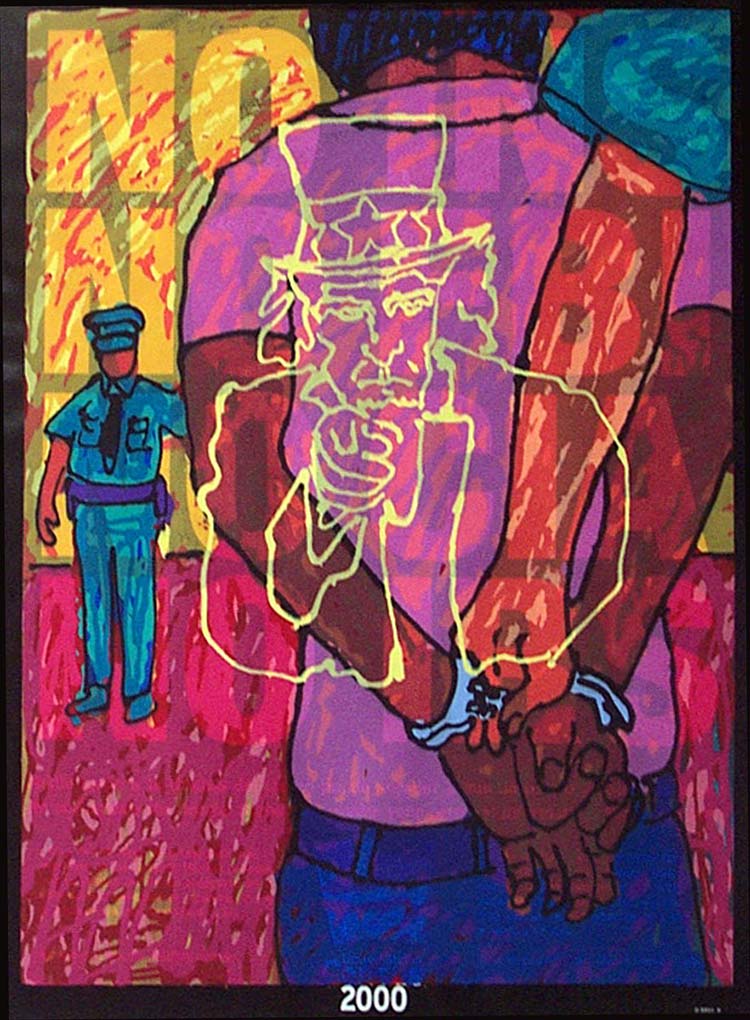
"A New Racial Profile," monotype/silkscreen by Professor Tony Ortega
Get Involved
Voices
Reflections and calls to action from Regis University students, faculty and staff.
Amadia Al-Amin: Feeling unsafe doing ordinary things
Asian Student Alliance: The model minority myth
Asian Student Alliance: We plead for recognition
Barbara J. Wilcots: Do you see me?
Black Student Alliance: Here we are again. And again. And again.
Christopher Pramuk: Elijah McClain, Pray for Us
Fr. Fernando Álvarez-Lara, S.J.: We are asking for breath
Message from then-President Fitzgibbons: Stand against anti-Asian hate
Message from then-President Fitzgibbons: Regis University stands with you
Nicki Gonzales: We can't afford to fail this time
Patrick I. Romero-Aldaz: As an institution, we must live our mission
Regis University Student Government Association (RUSGA): This racism did not begin with the virus
Regis University Student Government Association (RUSGA): Through dialogue we affect positive change
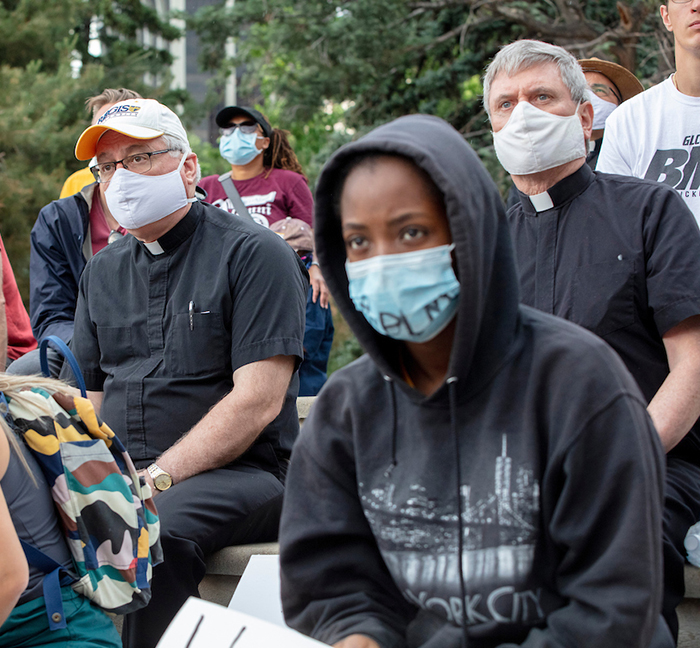
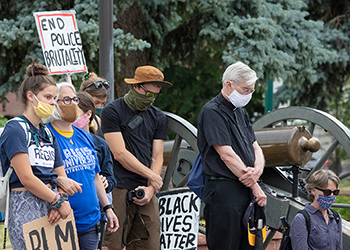
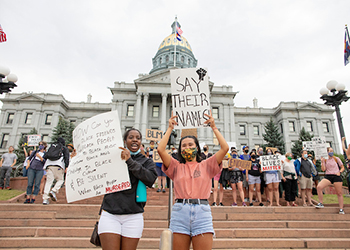
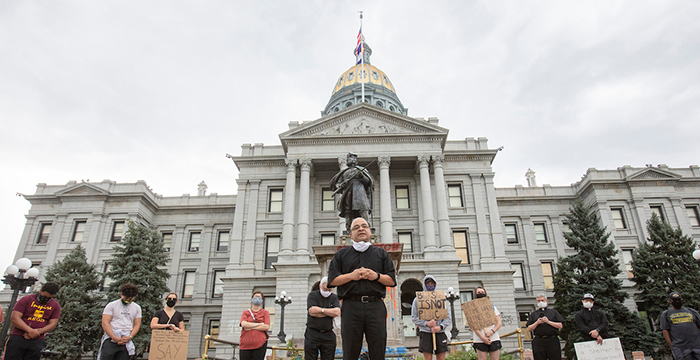
The Regis community, led by RUSGA officers, demonstrated for the Black Lives Matter movement at the Colorado statehouse in June. Then-President Rev. John P. Fitzgibbons, S.J., and other Jesuit priests joined the protest and led prayers. (Photos by Bear Gutierrez)

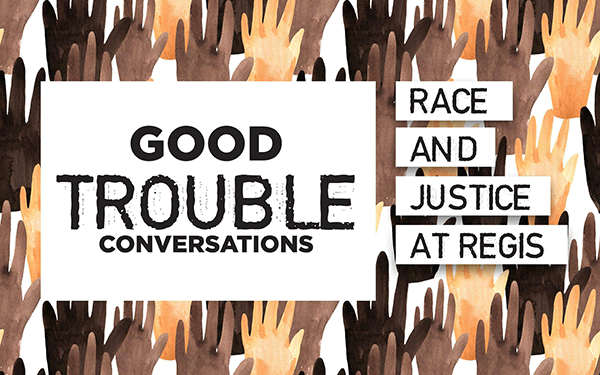

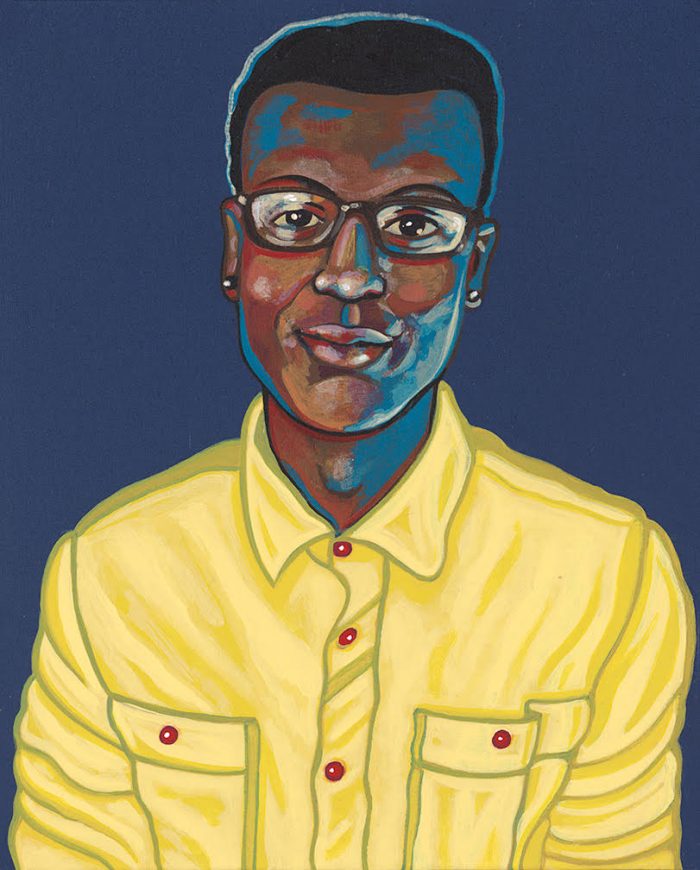 Elijah McClain, 25 February 1996 – 30 August 2019– posted by my friend, the artist and iconographer, William Hart McNichols. My own meditation on his painting follows.
Elijah McClain, 25 February 1996 – 30 August 2019– posted by my friend, the artist and iconographer, William Hart McNichols. My own meditation on his painting follows.